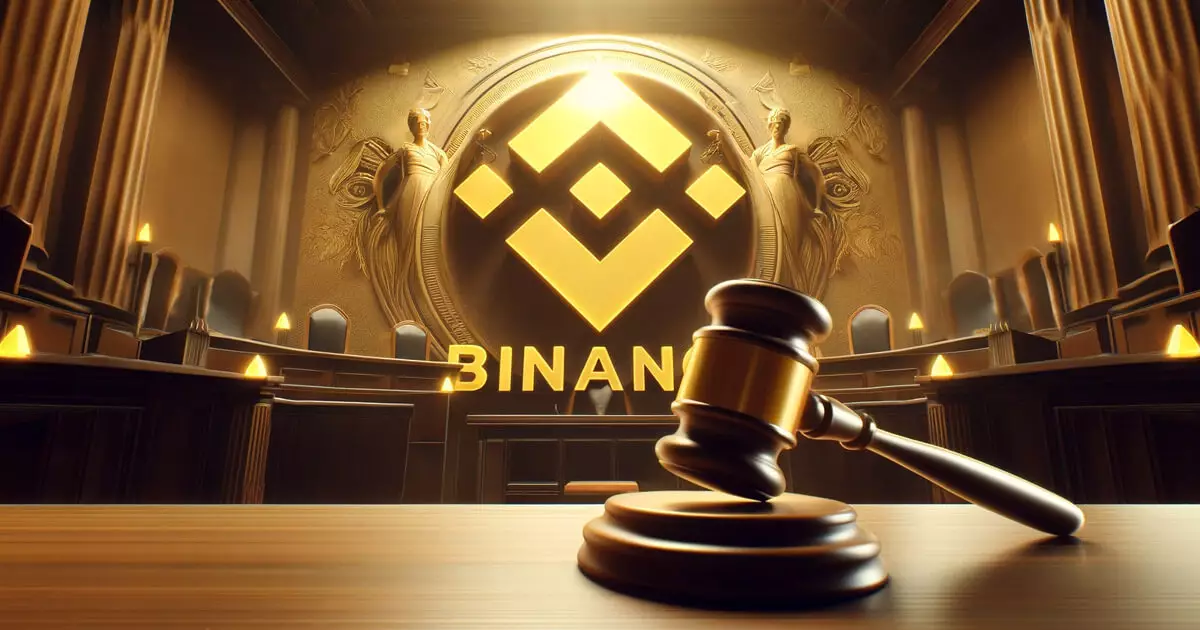In a significant turn of events, a former senior executive at Binance, Amrita Srivastava, has publicly alleged that her dismissal was a retaliatory act stemming from her whistleblowing activities. Srivastava, who had been employed with Binance focusing on the Link platform, has brought troubling allegations to light regarding a colleague’s solicitation of bribes linked to expedited services for clients. This revelation raises critical questions about corporate ethics and compliance within the cryptocurrency industry, especially as regulatory scrutiny intensifies across the sector.
Srivastava joined Binance in April 2022, following a successful tenure at Mastercard. Fond of the potential for compliance enhancements within the burgeoning crypto sphere, she was initially optimistic about her role. However, her experiences soon deteriorated into what she described as a “chaotic” work environment. Srivastava’s account indicates that pressures to accelerate revenue generation overshadowed compliance considerations, particularly after the company lost significant clients. The alleged incident involving the colleague allegedly disguised payments for integration services as “consultative services,” creating a façade intended to mask unethical practices while that individual distanced himself from formal associations with Binance.
By reporting these grievances to her management, Srivastava believed she was fulfilling her duty as an employee committed to integrity. However, just weeks after raising concerns in April 2023, she was terminated, ostensibly for “poor performance.” This quick succession of whistleblowing and termination forms the crux of her claim, designed to expose what she perceives as a broader issue regarding ethical standards within the crypto platform’s operational culture.
The legal landscape for whistleblowers in the UK is particularly robust, with uncapped awards available in employment tribunals under whistleblowing protections. This poses potential financial risks for Binance if Srivastava’s claims are substantiated. Binance’s legal team, on the other hand, contests these allegations, asserting that her dismissal was unrelated to her whistleblowing and that the alleged bribery was already under investigation internally. The company’s stance emphasizes its preemptive awareness of the issues at hand, but this assertion may only fuel the narrative surrounding their internal culture.
Moreover, Srivastava’s claims indicate a long-lasting impact on her career trajectory and personal reputation, suggesting that the fallout from such incidents can extend far beyond immediate consequences for the implicated individuals and companies. The repercussions of her experience at Binance, as she articulates, may take years to mend, highlighting the personal cost of ethical engagement in high-stakes corporate environments.
As the crypto industry evolves, cases like Srivastava’s serve as a critical reminder of the ethical challenges inherent in such a rapidly changing landscape. Whether the events at Binance are isolated incidents or reflective of systemic issues within the industry remains to be seen. Employees in positions of power must grapple with the tension between profit-driven motives and adherence to ethical standards, especially as regulatory bodies increase their oversight.
As whistleblower cases become more prevalent in technology sectors, particularly in cryptocurrencies often criticized for their opacity, organizations may need to take bold steps to cultivate environments where ethical reporting is encouraged and protected. The outcome of this case could set significant precedents for how similar allegations are handled in the future, signaling to both employees and companies that accountability is essential in maintaining trust and integrity within the ever-evolving digital economy.


Leave a Reply